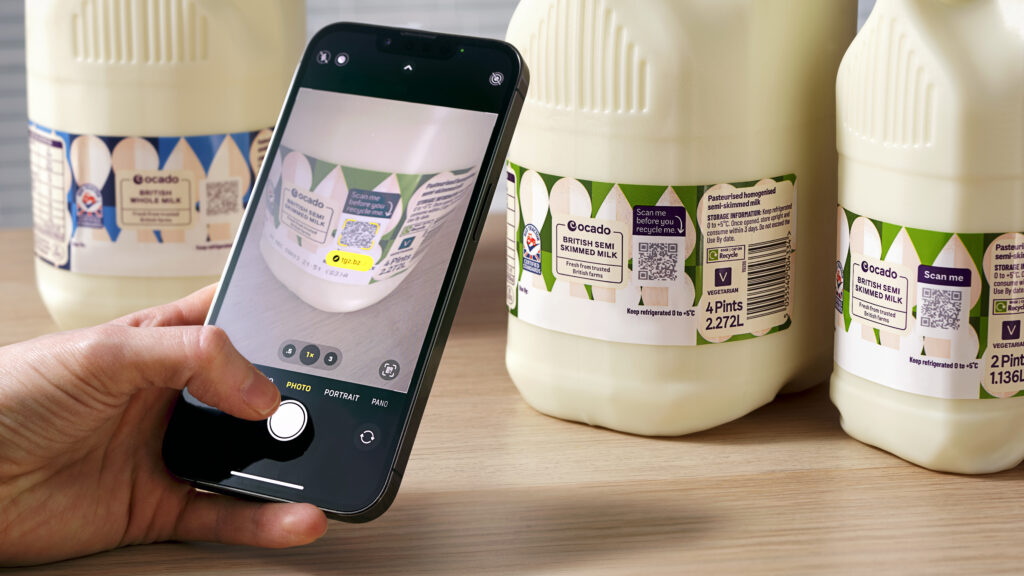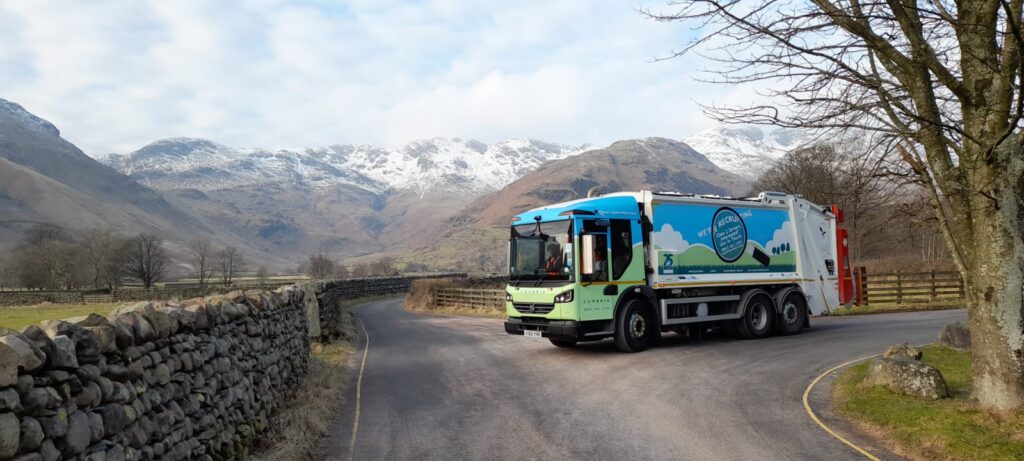Earlier this week, the consortium warned that the DRS could impose an annual cost of £1.8 billion on the retail industry (see letsrecycle.com story) and said it should be reviewed, warning that that the UK government “risks running into many of the same problems as in Scotland”.
The BRC represents some of the largest retail companies in the UK and is influential. It repeatedly called for a review of extended producer responsibility timelines, which helped lead to a one year delay to payments.
Digital DRS
In response to the criticism, Polytag said calls to pause the system “contrasts with recent innovative efforts” the company has made with a digital DRS.
Polytag’s digital DRS uses QR codes and an app to provide consumers with the “flexibility to choose between kerbside returns and retail options”. This would see consumers scan the barcode once they place it in the recycling bin, with the bottles then again scanned at a sorting facility where the consumer would receive their deposit back.
This model has been supported by many local authorities as they would retain ownership of the material, and it has also been backed by the Recycling Association.
‘Technology’
A Polytag spokesperson said: “Our Digital Deposit Return Scheme demonstrates that leveraging mobile technology can offer consumers the flexibility to choose between convenient kerbside returns and retail options. This alternative challenges the assumption that ‘return to retail’ is the only model.
“An eco-friendly DDRS utilising QR codes, and a user-friendly app is already proven and ready to implement. Government endorsement of adaptable regulations is crucial to stimulate recycling innovation. With environmental urgency in mind, it’s imperative for industry leaders like BRC to align with progressive recycling solutions. And not ‘pause’ any longer.”
In 2021, a digital DRS trial run by Polytag, the Welsh Government, Conwy county borough council, Ecosurety and Wrap Cymru showed a 97% participation rate (see letsrecycle.com story).








Subscribe for free